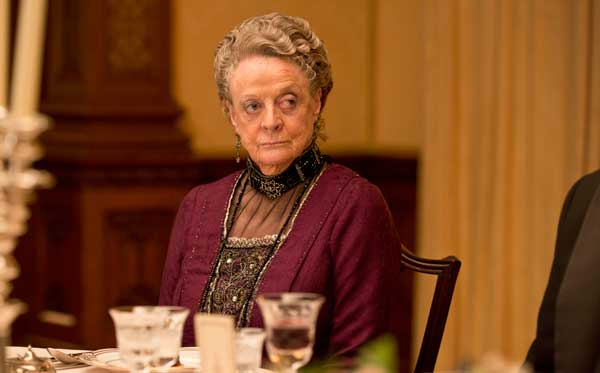
Sunday evening is the time for the television equivalent of comfort food: an hour or two of drama which entertains without challenging us too much.
Shows with a nice period feel are a winner. Crime is fine as long as it isn’t endlessly gritty. Because, even if we no longer live in fear of what Monday might hold in school or the work place, we will remain forever programmed genetically to respond to drama which soothes and leaves a warm glow at the Sabbath’s end.
This role was never filled better than by Foyle’s War, terrific sleuthing stories from the home front during World War Two with a detective (Michael Kitchen) oozing integrity, humanity and common sense.
Frost hit the spot and even Midsomer Murders had its moments before those crazy storylines set in, involving satanic rituals and mad people avenging wrongs done to their ancestors in the 13th century.
And now on Sunday nights, the daddy of them all is getting back into gear. “Sunday nights as they should be,” as ITV modestly announced its return the other week.
Downton Abbey is very high-class soap and there’s a case for making allowances. Junior newspaper reporters have it drummed into them that, when reviewing amateur dramatics, different rules apply from those in the world of the professional stage.
In the same way, Downton was never meant to be cutting-edge drama and should not be viewed in that light. However, even taken as soap, it can irritate as often as it pleases, particularly when it gets a bit twee and sentimental.
There was a danger of this happening last night when previously unyielding butler Carson finally came to terms with his sex and drugs and rock and roll past in the music hall. At the local railway station, Carson made peace with his erstwhile sidekick with whom, we learned last night, he had fallen out over a woman.
Carson’s last-minute change of mind was accompanied by a knowing use of that old railway cliché, the emergence from behind a cloud of steam. You can get away with a lot via a well-timed visual gag.
And there is a potential humdinger of a story on the way involving newspaper man Michael Gregson (Michael Palin lookalike Charles Edwards, who played Palin in the BBC film Holy Flying Circus) and Lady Edith. Gregson has discovered a brilliant way of divorcing his mad-in-the attic wife: he will become a German citizen. This is 1922 so, as folks are fond of saying these days, what could possibly go wrong?
Last night, Lady Edith suggested that he should meet the family. Perhaps nice-but-dim Lord Grantham, a man sure to back the wrong horse, will eventually agree to the match. He might well be swayed when he observes the admirable spirit of enterprise which Herr Hitler is aiming to inculcate in the new Germany.
His mother, the Dowager, would be far less likely to appreciate her granddaughter joining the Hun. It’s often said that Dame Maggie Smith has the best lines but even modest ones (“Lloyd George must be German, he’s only pretending to be Welsh”) go down well when delivered by her.
Alas, this is not a facility that can be attributed to young widow Lady Mary (Michelle Dockery), whose wooden delivery of leaden lines in episode one was exasperating. Still, she’s perked up after pep talks by Carson and the Lady Dowager and is now, thanks to the discovery of a letter written by her husband, on the verge of running the show.
Will she eventually get together with her tutor on the estate, the similarly bereaved Tom, or would that be a soapy dénouement too far? As they say, only time will tell.
I seem to recall the first series of Downton Abbey being the best and least soap-like. But this could be the mind playing tricks, as it does from time to time and never more weirdly than in the strange story of Una Stubbs, Cliff Richard and me.
A few weeks ago, I talked about Who Do You Think You Are? subject Una Stubbs. I revealed how, as a nine-year-old, I saw Summer Holiday in the Odeon in Manchester, then told my grandmother that it was only right and proper for Cliff, who I’d gone to see, to get the best girl, Una.
I’ve just watched Summer Holiday again. It’s colourful, innocent fun and Peter Yates, later to make such excellent films as Bullitt, Breaking Away and The Dresser, directs with panache. Cliff gives a decent performance.
But here’s the weird thing: Cliff and Una never become an item in Summer Holiday. Cliff hitches up with a young American singer who’s stowed away on the London bus dressed as a boy. Una’s beau is played by Melvyn Hayes, later to camp it up as Gloria in It Ain’t Half Hot, Mum.
What was occurring? I must have decided that Cliff and Una were meant for one another. So, on the way out of the cinema, I re-wrote the story to fit my own perfect ending.
What would a child psychologist have made of this?
- Read all our TV reviews here
